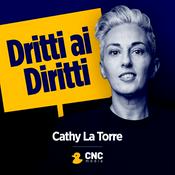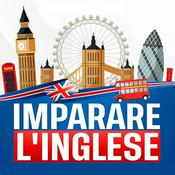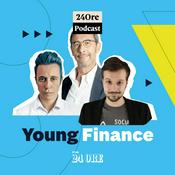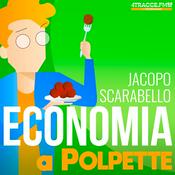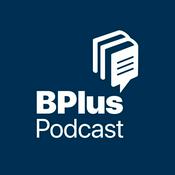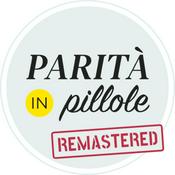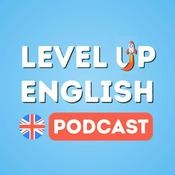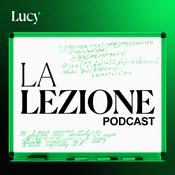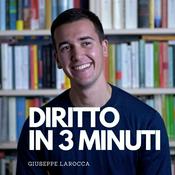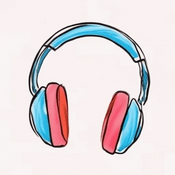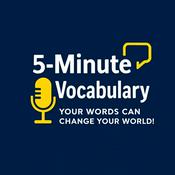28 episodi
- We've gathered the NaPS lab to answer all your fascinating questions on all things sleep! A perfect bitesize episode to get stuck into the marvellous world of sleep.
1. How does sleep deprivation affect mental health? - Answered by Martha Wawrzuta
Bunney, B. G. , Bunney, W. E. (2013). Mechanisms of Rapid Antidepressant Effects of Sleep Deprivation Therapy: Clock Genes and Circadian Rhythms. Biological Psychiatry
Fang, H., Tu, S., Sheng, J., Shao, A. (2018). Depression in sleep disturbance: A review on a bidirectional relationship, mechanisms and treatment. Journal of Cellular and Molecular Medicine
2. What is narcolepsy? - Answered by Kyrillos Meshreky
Leschziner G., Narcolepsy: a clinical review, Practical Neurology 2014;14:323-331
3. Does the full moon affect sleep? - Answered by Al Saqib Majumder
Casiraghi, L. et al. (2021). Moonstruck sleep: Synchronization of human sleep with the moon cycle under field conditions.
Chaput, J. P. et al. (2016). Are Children Like Werewolves? Full Moon and Its Association with Sleep and Activity Behaviors in an International Sample of Children. Sleep Medicine
4. How does a smart watch track sleep? - Answered by Yan Wang
5. What is orthosomnia? - Answered by Sophie Smith
Baron, K.G., et al. (2017) Orthosomnia: Are some patients taking the quantified self too far? J Clin Sleep Med
6. What is sleep regression and how long does it last? - Answered by Mo Abdellahi
Weinraub, M. et al. (2012). Patterns of developmental change in infants' nighttime sleep awakenings from 6 through 36 months of age. Developmental Psychology
Bruni O. et al. (2014) Longitudinal study of sleep behavior in normal infants during the first year of life. J Clin Sleep Med
7. Does Magnesium Citrate help you sleep? - Answered by Dulni Peramunugamage
Magnesium for sleep, Sleep Foundation, 2025
8. Does dark chocolate help you sleep? - Answered by Martha Nguyen
Abdoli, E. et al. (2024). A clinical trial of the effects of cocoa rich chocolate on depression and sleep quality in menopausal women. Scientific reports,
Garbarino, S., Garbarino, E., & Lanteri, P. (2022). Circadian Rhythm, Mood, and Temporal Patterns of Eating Chocolate: A Scoping Review of Physiology, Findings, and Future Directions. Nutrients
Music by Sergio Prosvirini from Pixabay
Check out our NaPS website to find out more about the podcast, our research and events.
This recording is the property of the Sleep Science Podcast and not for resale. - In this episode, we welcome neuroscientist Michele Bellesi from the University of Camerino to explore the fascinating world of glial cells and their dynamic role in sleep.
Michele guides us through the four types of glial cells:
Astrocytes: Regulators of synaptic function and help form the blood brain barrier (BBB)
Oligodendrocytes: Crucial for myelination and fast signal transmission
Microglia: The brain's immune sentinels, important for responding to infection and injury as well as shaping the synaptic landscape
Ependymal Cells: Involved in cerebrospinal fluid (CSF) production and CFS movement around the brain
We dive into how each of these cells types behaves differently across wake, sleep and sleep deprivation and the impacts on each cell types function.
Find out more about Michele's work here and see relevant papers below.
The role of sleep and wakefulness in myelin plasticity, 2019, Glia
Sleep loss promotes astrocytic phagocytosis and microglial activation in mouse cerebral cortex, 2017, Journal of Neuroscience
Effects of sleep and wake on astrocytes: clues from molecular and ultrastructural studies, 2015, BMC Biology
Check out our NaPS website to find out more about the podcast, our research and events.
This recording is the property of the Sleep Science Podcast and not for resale. S3E7 - Can sleep help us unlearn negative bias and update disturbing memories?- Xiaoqing Hu
01/10/2025 | 49 minCan sleep help us unlearn biases and make our memories more positive?
Implicit biases are unconscious stereotypes that influence our judgments and decisions - like assuming a particular gender for a specific job role. But what if we could change these biases?
In this episode, we explore how manipulations of sleep might help reshape our implicit attitudes. We speak with Professor Xiaoqing Hu, a leading researcher in the use of Targeted Memory Reactivation (TMR) during sleep to alter implicit bias and make memories more positive. Xiaoqing shares his journey of applying Implicit Association Tasks (IATs) to sleep research, and how conflict biases, congruent vs. incongruent data, and task design play a role in measuring and modifying bias.
We also dive into the nitty gritty of memory consolidation in sleep — examining how REM and NREM stages contribute to emotional memory consolidation, and how recency vs. saliency affects which memories get updated.
Prof. Hu discusses his groundbreaking study demonstrating the ability to update unwanted emotional memories during sleep, and we explore the potential for applying this research to clinical populations. We also consider how individual schemas might influence the effectiveness of TMR across different people.
If you would like to find out more about Prof. Hu's work, please see the lab website here. You can find relevant papers below:
Unlearning implicit social biases during sleep, 2015
Updating memories of unwanted emotions during human sleep, 2022
Targeted memory reactivation during sleep influences social bias as a function of slow-oscillation phase and delta power, 2023
Reactivating cue approached positive personality traits during sleep promotes positive self-referential processing, 2024
Aversive memories can be weakened during human sleep via the reactivation of positive interfering memories. 2024
Disarming emotional memories using Targeted Memory Reactivation during Rapid Eye Movement sleep, 2024
Targeted memory reactivation in REM but not SWS selectively reduces arousal responses, 2021
Glossary
IAT - Implicit Association Task - a test used to measure the strength of automatic associations between our concepts that we may not be consciously aware of.
TMR - Targeted Memory Reactivation - A technique used to modify memory processing, through the use of presenting cues (audio or smell) that were associated with learning, whilst a person sleeps. These cues can modify select memories and in recent research is being used in emotional memory.
__________________________________
Host Professor Penny Lewis
Produced by Sophie Smith
Check out our NaPS website to find out more about the podcast, our research and events.
This recording is the property of the Sleep Science Podcast and not for resale.- We're joined by Hongi Ngo, who developed a revolutionary technique for manipulating sleep oscillations during his PhD. Closed-loop Auditory Stimulation (CLAS), which uses bursts of pink noise which are carefully timed to a particular phase of an existing brain oscillation to either boost or dampen the target oscillation. It has been used to selectively strengthen or weaken memories, improve the immune response, reduce epileptic seizures, and even potentially to slow down age related cognitive decline.
Hongi tells us how he got got the idea for CLAS, explains how it works, and tells us about some of his existing studies. He talks about combining CLAS with Targeted Memory Reactivation (TMR) and discusses the ideas for future of brain modulation methods with techniques such as transcranial magnetic stimulation (TMS).
Some of the key papers discussed are:
Auditory closed-loop stimulation of the sleep slow oscillation enhances memory (2013)
Auditory closed-loop stimulation of EEG slow oscillations strengthens sleep and signs of its immune-supportive function (2017)
Thalamic spindles promote memory formation during sleep thrugh triple phase-locking of cortical, thalamic and hippocampal rhythms (2017)
Examining the optimal timing for closed-loop auditory stimulation of slow-wave sleep in young and older adults (2019)
Auditory stimulation during sleep suppresses spike activity in benign epilepsy with centrotemporal spikes (2021)
Shaping overnight consolidation via slow-oscillation closed-loop targeted memory reactivation (2022)
Check out our NaPS website to find out more about the podcast, our research and events.
This recording is the property of the Sleep Science Podcast and not for resale. S3E5 - Anna Schapiro - Can we model the way REM and NREM replay consolidate memories?
02/07/2025 | 53 minHow are memories represented in the brain and how can we model this?
Professor Anna Schapiro from University of Pennsylvania as we discuss her work on computational modelling of sleep and memory. In this episode, we discuss several kinds of Neural Network models as well as diving into the history of Jay McClleland's Complementary Learning Systems theory and Anna's recent work on combining neural network modeling with EEG.
Find out more about Anna Schapiro and her research group here.
Links to articles discussed in this episode:
Why there are Complementary Learning Systems in the hippocampus and neocortex
Methods for reducing interference in the Complementary Learning Systems model
Self-recovery of memory via generative replay
A unifying account of reply as context-driven memory reactivation
Host: Penny Lewis
Editor: Sophie Smith
Check out our NaPS website to find out more about the podcast, our research and events.
This recording is the property of the Sleep Science Podcast and not for resale.
Altri podcast di Scolastico
Podcast di tendenza in Scolastico
Su Sleep Science Podcast
We spend a third of our lives sleeping, and this podcast is all about understanding sleep. We know a lot about what the brain does in sleep, but we are just starting to understand why it does some of these things, and even more excitingly, how we can take full advantage of sleep and also manipulate it for our own ends. In each episode, neuroscientist Penny Lewis interviews a different sleep researcher, talking about a various aspect of sleep science. Topics include sleep physiology and medicine, circadian rhythm, how sleep impacts on our memories and creativity, Sleep Engineering for enhanced health and cognition, and the most recent technologies to promote sleep.©SleepSciencePodcast 2021. These materials may be downloaded for personal use only. They may not be shared, distributed or reproduced in any form or for any reason without express permission
Sito web del podcastAscolta Sleep Science Podcast, Dritti ai Diritti - Cathy La Torre e molti altri podcast da tutto il mondo con l’applicazione di radio.it
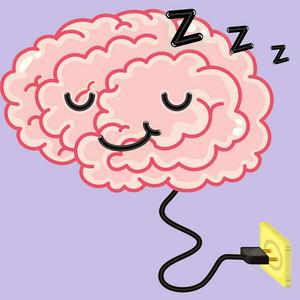
Scarica l'app gratuita radio.it
- Salva le radio e i podcast favoriti
- Streaming via Wi-Fi o Bluetooth
- Supporta Carplay & Android Auto
- Molte altre funzioni dell'app
Scarica l'app gratuita radio.it
- Salva le radio e i podcast favoriti
- Streaming via Wi-Fi o Bluetooth
- Supporta Carplay & Android Auto
- Molte altre funzioni dell'app


Sleep Science Podcast
Scansione il codice,
scarica l'app,
ascolta.
scarica l'app,
ascolta.

